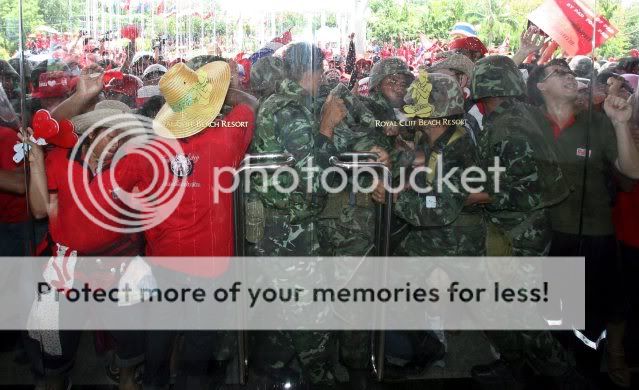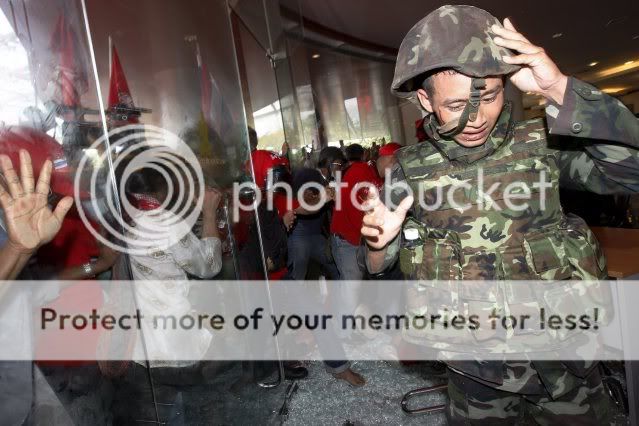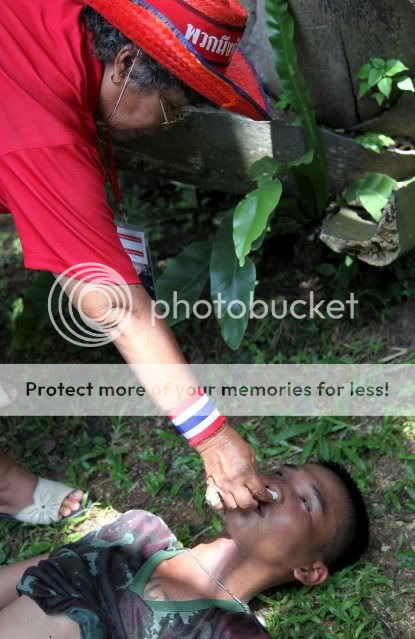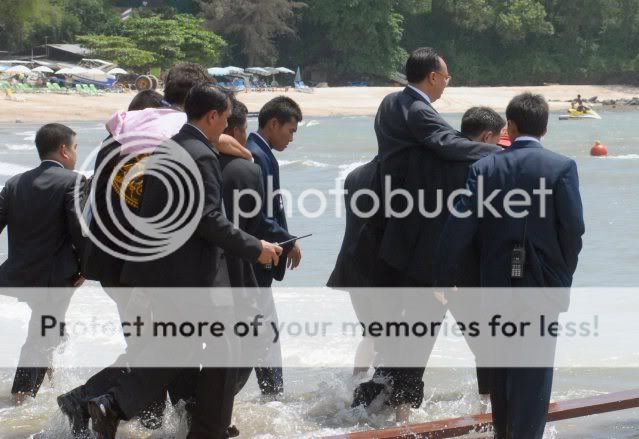- Reaction score
- 0
- Points
- 360
More chaos in Bangkok:
Bangkok airport closed; terminal stormed
Protests turn violent
Agence France-Presse
First Posted 22:54:00 11/25/2008
BANGKOK--(UPDATE 2) Rampaging anti-government protesters forced the closure of Thailand's main international airport Tuesday as a second day of demonstrations in Bangkok descended into violence with 11 injured in clashes.
Thousands of supporters of the People's Alliance for Democracy (PAD) breached police lines and stormed Suvarnabhumi Airport, a key Asian transport hub, in their effort to pressure the premier to resign.
"I decided to shut down services after the protesters broke the door on the fourth floor of the terminal and stormed into the departure lounge. I had no alternative," airport director Saereerat Prasutanont said.
Flights into Suvarnabhumi -- a key Southeast Asian hub for millions of travellers and tourists -- will be diverted to the northern city of Chiang Mai or the southern island of Phuket, a spokeswoman said.
Hours earlier, a clash erupted on a road to another, disused air terminal where thousands of activists behind a six-month campaign to topple the government have besieged the makeshift base of premier Somchai Wongsawat.
A nurse at the Paolo Memorial Hospital near where the clashes happened said they were treating 10 men and one woman who sustained injuries in the incident.
A senior Metropolitan police officer told AFP that the wounded were pro-government supporters, eight of whom were shot by members of the People's Alliance for Democracy (PAD) anti-government group.
"One of them is in a critical condition as he was shot in the chest," he said.
Television footage showed two men wearing yellow armbands over camouflage jackets firing pistols. Opposing groups, including some wearing red shirts of the pro-government camp, hurled stones at each other beneath a Bangkok flyover.
PAD protesters drape themselves in yellow shirts and headbands to symbolise their loyalty to Thailand's revered monarchy.
The airport closure and clashes came a day after protests by the PAD -- a loose coalition comprising royalists, Bangkok's old elite and the middle class -- forced the cancellation of a parliamentary joint sitting on Monday.
The alliance has said it is in a "final battle" against the government elected in December, which it accuses of being a corrupt puppet of exiled former premier Thaksin Shinawatra. Thaksin was ousted in a 2006 coup.
Riot police have largely refused to tackle protesters amid fears of a repeat of clashes between protesters and police on October 7 that left two people dead and 500 injured, the worst political violence in Thailand for 16 years.
"The PAD needs to increase the level of the demonstration and use non-violent protest and close Suvarnabhumi Airport to send a final word ... to Somchai and his cabinet," the group in a statement.
"Resign immediately and without conditions."
Somchai, who is Thaksin's brother-in-law, has rejected calls to quit.
"Anyone who wants to overthrow or resist the government is attempting a rebellion," Somchai told the Thai National News Agency on board a flight from an APEC summit in Peru.
Somchai's plane had already been diverted from the main airport and will land at an undisclosed locations on Wednesday evening.
Early on Tuesday about 10,000 protesters surrounded Bangkok's old Don Mueang international airport where Somchai is temporarily based.
Protesters have occupied the prime minister's official office in Bangkok since August.
The PAD, which launched huge street protests in 2006 that led to the Thaksin coup, called this week's rallies in response to a grenade attack on Thursday that killed one protester.
Hundreds of PAD supporters also went to Thai military headquarters, but army chief General Anupong Paojinda dismissed their calls for the army to step in.
"The armed forces have agreed that a coup cannot solve our country's problems and we will try to weather the current situation and pass this critical time," Anupong told reporters.
Billionaire Thaksin fled Thailand in August this year to avoid corruption charges, but has said in an interview that he wants to return.
"With me at the helm I can bring confidence quickly back to Thailand," he told Arabian Business magazine in an interview published Sunday on its website.









